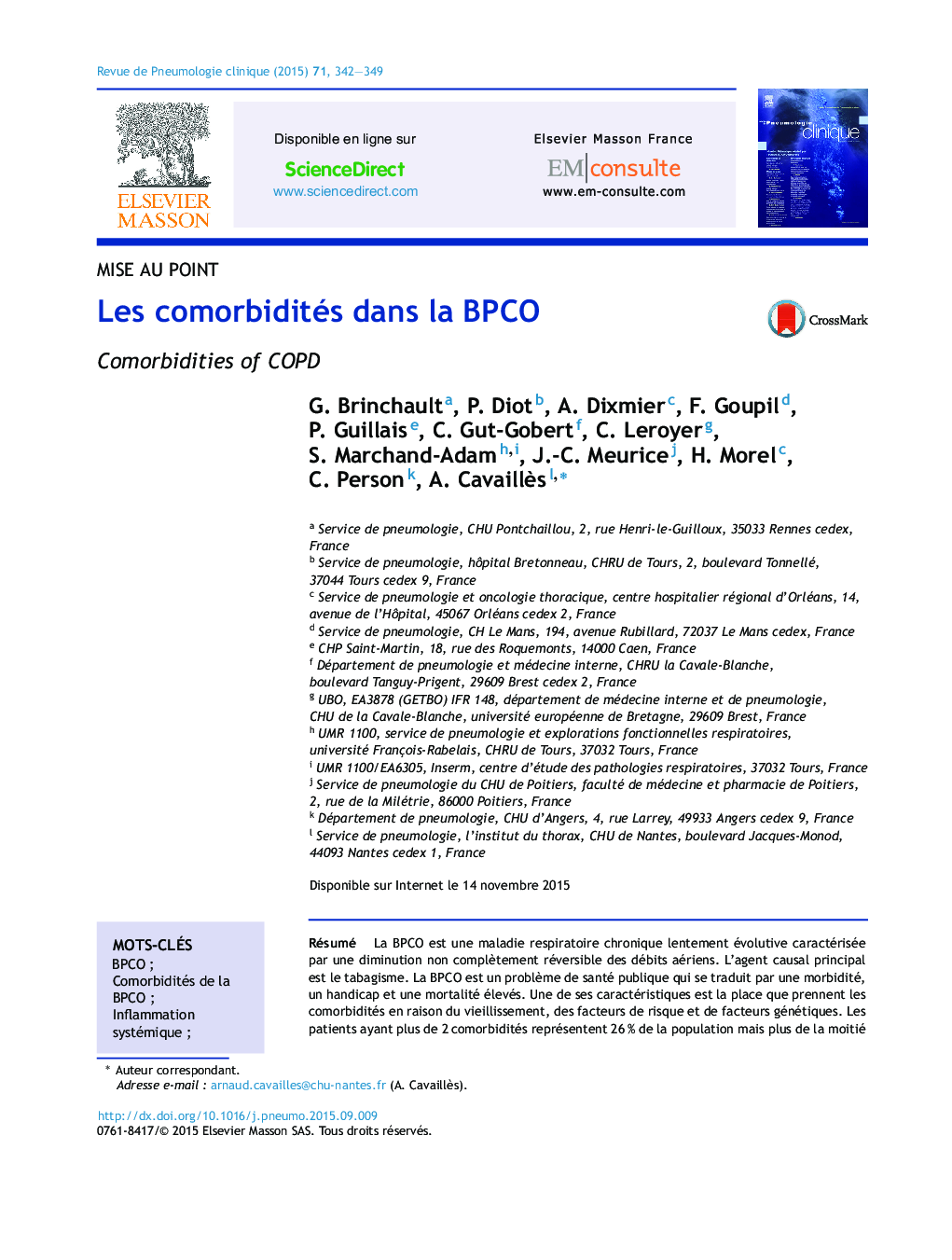| Article ID | Journal | Published Year | Pages | File Type |
|---|---|---|---|---|
| 3419378 | Revue de Pneumologie Clinique | 2015 | 8 Pages |
Abstract
COPD is a slowly progressive chronic respiratory disease causing an irreversible decrease in air flow. The main cause is smoking, which provokes inflammatory phenomena in the respiratory tract. COPD is a serious public health issue, causing high morbidity, mortality and disability. Related comorbidities are linked to ageing, common risk factors and genetic predispositions. A combination of comorbidities increases healthcare costs. For instance, patients with more than two comorbidities represent a quarter of all COPD sufferers but account for half the related health costs. Our review describes different comorbidities and their impact on the COPD prognosis. The comorbidities include: cardiovascular diseases, osteoporosis, denutrition, obesity, ageing, anemia, sleeping disorders, diabetes, metabolic syndrome, anxiety-depression and lung cancer. The prognosis worsens with one or more comorbidities. Clinicians are faced with the challenge of finding practical and appropriate ways of treating these comorbidities, and there is increasing interest in developing a global, multidisciplinary approach to management. Managing this chronic disease should be based on a holistic, patient-centred approach and smoking cessation remains the key factor in the care of COPD patients.
Keywords
Related Topics
Health Sciences
Medicine and Dentistry
Infectious Diseases
Authors
G. Brinchault, P. Diot, A. Dixmier, F. Goupil, P. Guillais, C. Gut-Gobert, C. Leroyer, S. Marchand-Adam, J.-C. Meurice, H. Morel, C. Person, A. Cavaillès,
